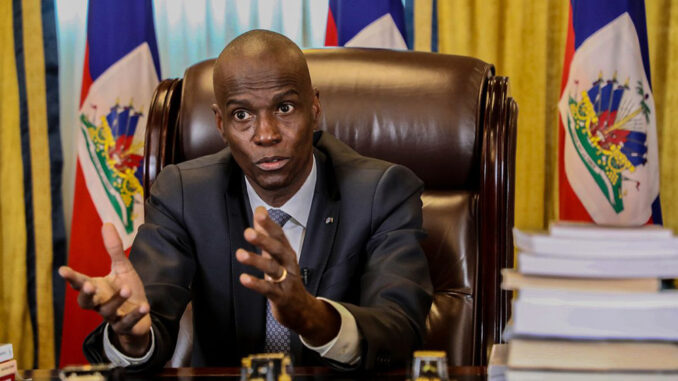
Port Prince-. Two years after the assassination of President Jovenel Moise today, justice is still far from giving evidence of the crime that has exacerbated the already deep social, political, economic and security crisis in Haiti.
The president was brutally shot at his private residence in this capital city in an attack in which his wife, Martine Etienne, was seriously wounded, and there are still few answers about it.
The investigation has been crippled for months and led by no fewer than five investigating judges, the latest of which is Walter Weiser Voltaire, who has revived the case in recent weeks and called several hearings.
On Thursday, the incumbent Ministers of Planning and Economy, Ricard Pierre and Patrick Boasvert, respectively, as well as the head of the Directorate of Drinking Water and Sanitation Ghetto Edouard and the Directors General of the Ministry of the Interior and the National Agency for Protected Areas are summoned.
However, more than 30 people are still being held in the National Prison without charge, including twenty former Colombian soldiers accused of carrying out the assassination.
“The call continues for those responsible for this heinous crime to be brought to justice. His assassination plunged the country into a deeper political crisis, exacerbated by an unprecedented security breakdown, as armed criminal gangs imposed a regime of terror and violence across much of Port-au-Prince,” police said Thursday. United Nations Integrated Office in Haiti, Maria Isabel Salvador.
El Salvador expressed before the UN Security Council its regret for the aggravation of the situation due to the humanitarian crisis, human rights, and the social and economic crisis that the country is facing.
The Center for Analysis and Research in Human Rights had called the day before for the creation of a special tribunal to try the suspects and suggested that halting investigations could be a strategy to “empty” the issue of substance and amount to parody. of judgment.
The platform encouraged Haitian authorities to explore other proposals, including special courts in Cambodia, Lebanon, Sierra Leone and the Central African Republic, as well as extraordinary and criminal chambers in Africa and Kosovo, given the inaction of the national justice system.
The court said that these courts, to which national and international judges belong, refer to national law with regard to procedures and criminalization, and comprise the domestic legal system.
Meanwhile, in the United States, businessman Rudolf Jarre, one of the eleven arrested, was sentenced to life in prison after admitting his participation in the conspiracy.
Another 10 could face trial in the middle of this month with sentences of life or decades in prison.
The inactivity of justice reveals the impunity that gnaws at the country, despite the promises of current Prime Minister Ariel Henry to support the investigation.
Two years later, neither crime nor political controversies seem to have an answer in the medium term, while gang violence defies intentions to steer Haiti toward a democratic and peaceful path.

“Unapologetic tv specialist. Hardcore zombie trailblazer. Infuriatingly humble problem solver.”
